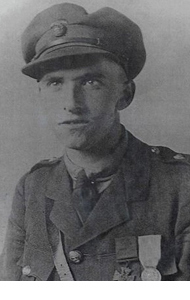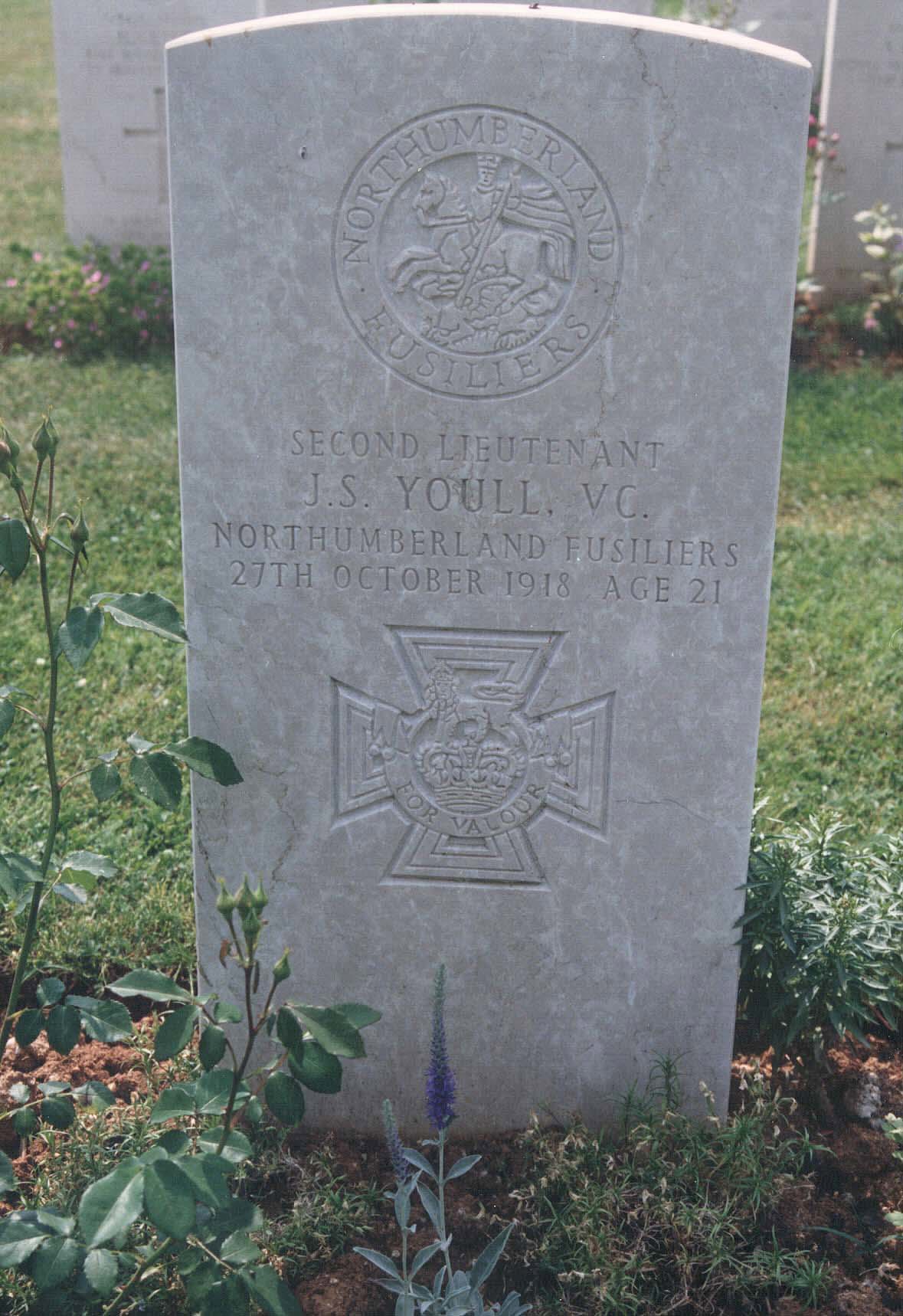26 September 2018
Apprentice electrician turned VC hero remembered 100 years on

An apprentice electrician who went on to win a VC for fighting bravely in Italy is being remembered 100 years after his death.
John Youll VC, from County Durham, was awarded the nation’s highest honour fighting in the foothills of the Italian alps. John survived some of the First World War’s most infamous battles, including the Third Battle of Ypres (Passchendaele), before being killed in Italy just a fortnight before the Armistice in 1918.
The Commonwealth War Graves Commission is remembering him and others who fell in the final stages of the conflict as part of its Road to Peace campaign which is shining a light on 120 human stories behind some of the war casualties who fell in the closing days of the First World War.
Born in 1897, John Youll was the youngest son of Richard and Margaret of Thornley, County Durham. He worked at the local colliery as an apprentice electrician before signing up in July 1916. He joined the Royal Engineers as a private and first served on the Western Front.
John proved himself a capable solider and in August 1917 was commissioned as a Second Lieutenant and posted to the 11th Battalion Northumberland Fusiliers. He led a platoon during the Third Battle of Ypres (known as Passchendaele) and was mentioned in despatches during fighting at Polygon Wood.
In November 1917, John and the 11th Battalion Northumberland Fusiliers were redeployed to support the Italian forces fighting against the Austro-Hungarians and their German allies. The fighting between Italy and the Austro-Hungarian Empire spanned a 400-mile front from the Adriatic Sea deep into the snowy Alps. The battles were bitter and costly and included the October 1917 Battle of Caperetto, a combined Austro-Hungarian and German offensive, which saw the Italians suffer more than 600,000 casualties. In response British and French forces were rushed from the Western Front to support their allies.
In June 1918, the Austro-Hungarians launched another offensive on the Asiago Plateau, a strategically important position in the foothills of the Alps. British forces involved guarded several defensive positions, but a number of forward patrols were needed to provide vital intelligence on enemy movements.

While leading one such patrol John and his men came under fire. He ordered his comrades to withdraw and remained alone to observe. Cut off from retreat, he joined a neighbouring British unit and fought on, rushing an enemy machine-gun. He killed the crew and turned the weapon on advancing enemy soldiers before he led three separate counter attacks.
For his actions that day he was awarded the Victoria Cross and the Italian Silver Star of Military Valour. The citation states that: ‘Throughout the fighting his complete disregard of personal safety and very gallant leading set a magnificent example to all.’
John survived the rest of the battle and three months later fought at the Battle of Vittorio Veneto, the last offensive of the First World War in Italy, which resulted in the Austro-Hungarian Empire surrendering on 4 November 1918. John never lived to see the moment of victory. He was killed during the final days of the campaign on 27 October 1918, aged just 21. He was laid to rest in CWGC Giavera British Cemetery, Arcade, Italy. Upon his headstone is engraved a likeness of the Victoria Cross.
The Road to Peace Project aims to illustrate the global nature of sacrifice of the First World War. From famous casualties like war poet Wilfred Owen, through to relatively unknown individuals; from those dying in battle to those who died of Spanish Flu; each story has been carefully chosen to shine a light on the human stories on the costly Road to Peace.
CWGC Historian, Max Dutton, explained: “Behind every one of our headstones or names on a memorial to the missing, is a human story just waiting to be told. Our 100 days “Road to Peace” campaign will remind people of the human cost of the Great War, the sheer diversity of those who took part and the global nature of that sacrifice and remembrance today. We hope John’s story will inspire people to find out more about him and his fellow comrades commemorated by the CWGC and visit their graves and memorials.”
From 8 August – the 100th anniversary of the Allied victory at the Battle of Amiens – the “Road to Peace” campaign will conclude on 11 November with the stories of 11 people who died on the very last day of the First World War, even as the guns fell silent. The “100 Days” is a term applied to the final period of the First World War, during which the Allies launched a series of offensives on the Western Front that ultimately led to peace. Not actually 100 calendar days, the term is a reference to the final period of the Napoleonic Wars. The Road to Peace stories will be shared across the CWGC’s digital channels on Facebook, Twitter and Instagram. A story will appear every day – with a more in-depth feature appearing weekly.

